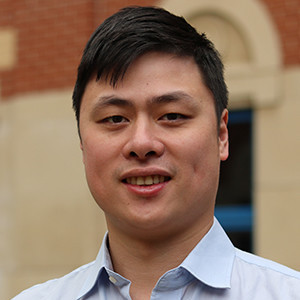
Name: Dr Dennis Wang
Institution: University of Sheffield
Connection to the Academy: Springboard awardee
“I helped coordinate the largest data release of how drugs work in combinations from a pharmaceutical company.”
Can you give an overview of your research?
I translate patterns in the human genome into information used to develop new treatments for complex diseases. My group uses machine learning algorithms and statistical models to integrate genomic and clinical data sets to predict patient outcomes. We also develop simple computational methods that catch biases in diagnostic data and help clinical researchers objectively stratify cohorts of patients.
Why did you apply for the Springboard award and what appealed to you about the scheme?
A previous Springboard awardee doing biostatistics work referred me to the award. I became very interested in the vast and interdisciplinary network of the Academy, which is exactly what I need for my computational work to have an impact on the medical sciences.
“The Springboard award has allowed me to hire a postdoc who can focus on the bigger and more general questions surrounding personalised medicine, instead of hiring someone who must produce specific deliverables for a clinical project.”
What’s next for your work in personalised medicines?
Advances in artificial intelligence have demonstrated the potential to accelerate diagnosis of single diseases, but we know from an aging population that there are multiple diseases that could affect an individual. I believe the intersection of personalised medicine and artificial intelligence is where we can use machines to learn from one disease and make intelligent predictions of another disease. I am currently training algorithms across cancers, neurodegenerative disease and respiratory diseases to find common predictors in individuals so that a drug can possibly treat several ailments at once.
Describe your movements between academia and industry.
My postgraduate research began at government research agencies (EMBL and MRC). I moved into healthcare during my postdoc by working at a clinical genomics facility at the Princess Margaret Cancer Hospital. Then I joined AstraZeneca to develop drugs in industry and collaborated with Microsoft Research. I am now fully embedded in academia as a lecturer at the University of Sheffield, working as part of the bioinformatics team there.
What is your advice for moving between academia and industry?
Focus your interests not on the setting (whether it is academia or industry), but instead on the type of work you will be doing and who you are working with. I have done blue sky research in industry and commercial work in academia; they were enjoyable in both settings. When I think about the highs and lows in my academic and industry career, the most important factor was the individual supervising my work.
How do you relax outside work?
I like to travel to exotic locations, but that is a lot more difficult now with two small kids. More frequently I find myself watching YouTube videos of food adventurers in exotic locations!
Research highlights:
- Identified predictors of survival and treatment response for non-small cell lung cancer patients (the same type of cancer that killed many of my relatives).
-
Developed in silico models of kinase signalling pathways that researchers can run and test hypotheses. This could potentially save many animals and patients from being tested with ineffective drugs.
-
Helped coordinate the largest release of drug combinations data from a pharmaceutical company and motivated open science